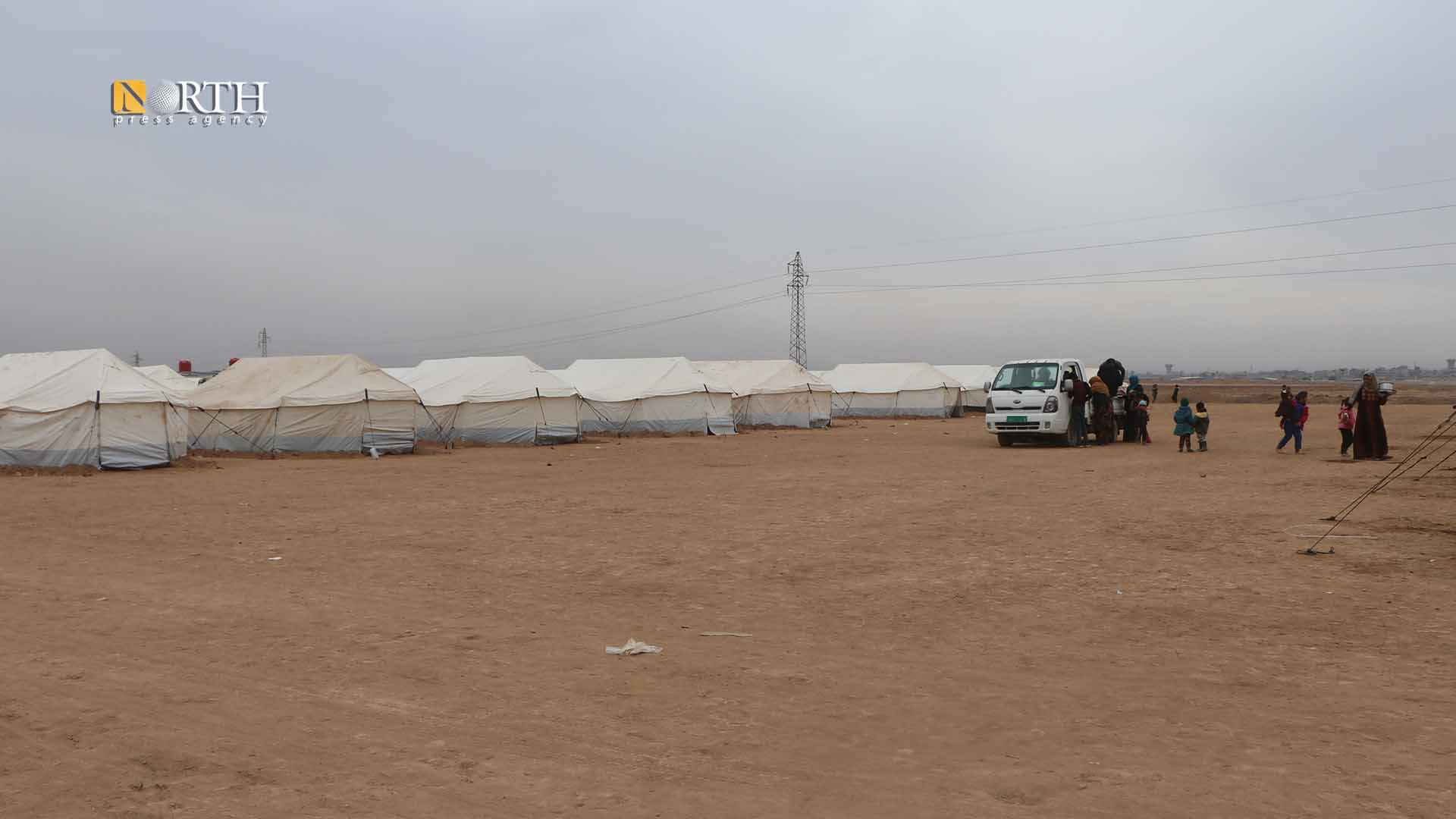HASAKAH, Syria (North Press) – For two weeks, Syrian families have displaced to a new attachment camp, swiftly established in Sere Kaniye Camp located in Hasakah city, northeastern Syria.
Women and their children gather around a fire near a sand berm. Their first night in the tentwas no different from other winter nights. It was too cold, no mattresses to sleep on, no blankets to cover with and no heaters.
The families, mostly from Abu Rasin and Tel Tamr towns, flee the intensive shelling carried out by Turkish forces and their affiliated Syrian armed opposition factions.
The shelling has left behind scores of casualties and destroyed houses, especially in the two villages of Dada Awn and al-Rabi’a and also in the town center of Abu Rasin.
North Press correspondent said on Monday a fresh Turkish shelling targeted the villages of Tawila and Tel Tawil in the countryside of Tel Tamr but reported no casualties.
Dozens of families
Ten days ago, Mousa Wezo, 41, and his family, displaced from the village of Rabi’at, Abu Rasin countryside, and sheltered in a school known as al-Frahidi in Hasakah city.
Organizations related to the Syrian government delivered some mattresses, blankets and other stuff to several families in the school. But, those who received nothing moved to the new attachment camp.
Carrying his infant in his lab, Wezo said “We were among those families who received no aid. Now we are in this tent without blankets or heaters”.
“I am concerned about my infant. If he gets sick, we will need at least 50,000 Syrian pounds,” he added.
Dozens of the IDP families holding documents proving they are from Abu Rasin and its countryside, have gathered at the gate of the camp saying they had left their homes due to the Turkish shelling.
However, some of them have got no permission to enter the camp so far.
The women outside the camp have lit fire and gathered around it waiting to be allowed in.
Anoud al-Hamad, 51, a woman who fled from Dada Abdal village told North Press correspondent that her house was exposed to shrapnel. Earlier, they used to go to the open air or to a valley near the village during shelling and came back later when it snoozes, but now their fears have increased.
“We were not allowed to enter the camp. They know our houses are damaged. They have already took footages of the demolished homes. We have nowhere to go,” she said.
No UN aid
Yilmaz Ibrahim, co-chair of Sere Kaniye Camp management, said the camp already shelters 2,225 Syrian families, in total of 12,036 individuals. The management added 76 new tents and sheltered 36 new families in total of 309 individuals.
“The management had plans to attach to the camp 1,000 new tents but the retreat of organizations to deliver support to the IDPs stopped the plan temporarily,” Ibrahim added.
In regard to not allowing some families to enter the camp, Ibrahim said the camp management follow specific standard to let families in. They decide the most “needy” families in coordination with the local councils in the targeted areas.
“The families, already displaced from different areas, suffer difficult living conditions and ask to be sheltered in the camp, making things more complicated for us.”
“The urgent aid we deliver now is designated for the IDPs from Sere Kaniye, Zargan, Tel Tamr and its countryside,” Ibrahim added.
Sere Kaniye Camp management communicated with international organizations asking them to deliver support given the existing aids are only sufficient for urgent needs, according to the camp management.
“The United Nations High Commissioner for Refugees (UNHCR) abstains giving support to Sere Kaniye Camp and Washokani Camp because the Syrian government does not acknowledge them,” Yilmaz Ibrahim noted.

